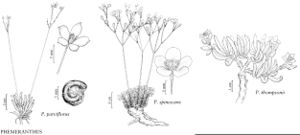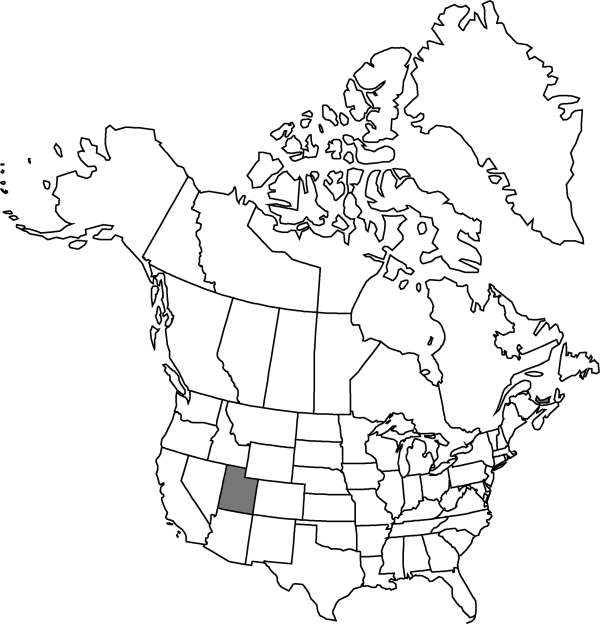Phemeranthus thompsonii
Novon 11: 321. 2001.
Plants to 5 dm; roots tuberous, fleshily woody. Stems spreading-ascending, branching, suffrutescent. Leaves sessile; blade subterete, to 3.5 cm. Inflorescences cymose, overtopping leaves; peduncle not scapelike, to 1 cm. Flowers: sepals persistent, ovate, to 5 mm; petals pink, obovate, to 8 mm, apex short-acuminate; stamens 10; stigma 1, capitate. Capsules apically keeled along sutures, ellipsoid, to 6.5 mm. Seeds without arcuate ridges, to 1.3 mm.
Habitat: Pinyon-juniper and ponderosa pine communities in silicious conglomeritic gravel
Elevation: 2000-2500 m
Discussion
Of conservation concern.
Phemeranthus thompsonii is known only from Emery County. It is very similar to, and perhaps should be merged with, P. validulus, from which it differs mainly in having much shorter peduncles. When originally described, P. thompsonii was thought to differ also in having fewer stamens and longer leaves and petals, but in fact P. validulus sometimes has as few as six stamens, and has maximum leaf and petal lengths greater than those found in P. thompsonii.
Selected References
None.

